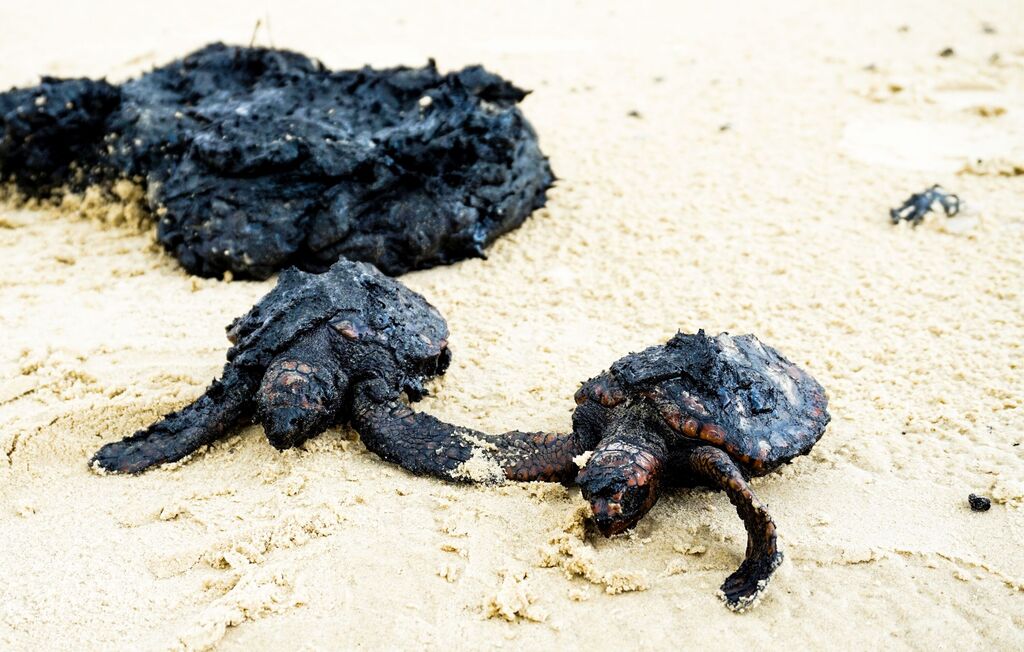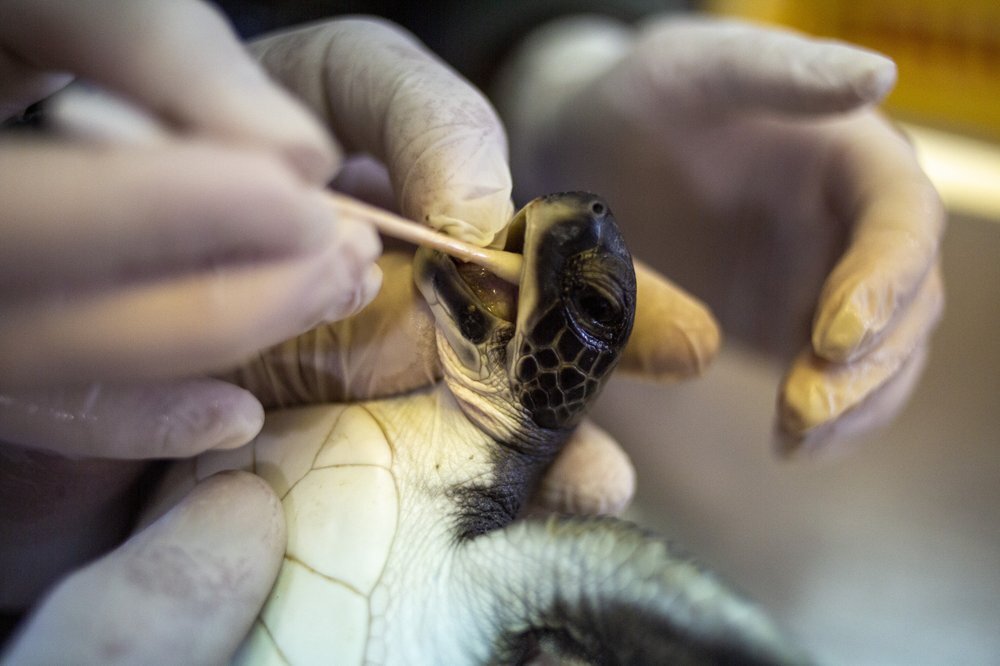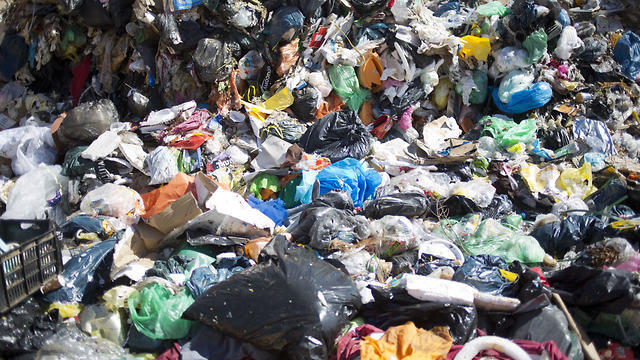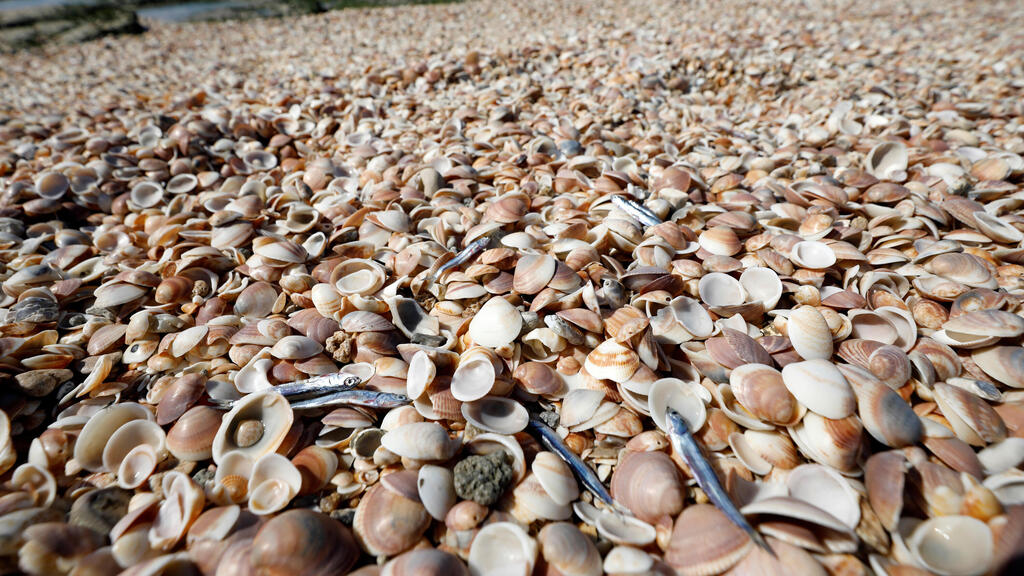Getting your Trinity Audio player ready...
After posing proudly for photographs showing them bravely receiving the coronavirus vaccine, Israel’s politicians have found a new hobby: Posing for photos delicately holding baby sea turtles covered in tar after they were rescued from the massive pollution covering the majority of Israel’s beaches.
And while the tar pollution is indeed one of the gravest ecological disasters Israel has ever seen, we need to remember that the Mediterranean, which of course connects to Israel’s coastline, is suffering from a much more prevalent pollution problem.
4 View gallery


Turtles smeared in tar at Gador Nature Reserve after the oil spill off Israel's coast
(Photo: Yosef Segal)
For as terrible as the viscous black liquid is, tar is not the worst pollutant in the Mediterranean.
Studies show that over half a million tons of plastic is dumped into the waters of the sea every year. This equates to throwing 33,800 plastic bottles into the water every single minute.
And since the production of plastic waste is expected to multiply twentyfold by the year 2050, this worrying phenomenon will only worsen unless some preventive action is taken.
According to the World Wildlife Fund organization - which works to preserve wildlife and endangered species - Israel holds the dubious pleasure of being third place among the countries that most pollute the sea.
Additionally, Tel Aviv is the city which creates the most pollution on any Mediterranean coast - with 21kg of plastic per person on average.
Unlike globe-spanning oceans, the Mediterranean sea spits 80% of the plastic polluting its bowels back to shore within a decade. This means that the majority of the plastic waste that goes into the ocean eventually returns to land to harm and even kill the flora and fauna around us.
Over 700 marine species worldwide, including mammals and birds, are affected by plastic due to ingestion, entanglement, or habitat damage. This is not only disastrous, we actually don’t fully know what effects it will have on the natural world.
4 View gallery


A baby sea turtle is cleaned from tar at Israel's Sea Turtle Rescue Center in Mikhmoret after the oil spill in the Mediterranean
(Photo: AP)
So, what has caused the winds to change after years of government neglect? Criminal oversight.
The tar disaster that is now upon us was a matter of time.
A European satellite snapped the oil spot six days before it reached the shores of Israel, but no one acted. Why? Because the response plan for potential marine pollution, which was written in 2008 and costs only NIS 15 million a year, was never budgeted for at all.
The money that was supposed to be used for special facilities and equipment such as ships with the capabilities to handle oil spills simply does not exist.
The inter-ministerial fight between the Environmental Protection and Finance ministries will continue while countless sea creatures die an agonizing death.
Yet all of this only the appetizer for the truly great catastrophe that is to come when the agreement between the Trans-Israel pipeline company and the UAE comes to fruition. Israel will become a major hub for the transmission of polluting fossil fuels from the Persian Gulf to Europe via an underwater pipe that could easily leak and create an unimaginable catastrophe.
For now all we can do is hope that Israel's leaders will have the sense to think ahead. We could breath a little easier - at least until the next oil spill.



